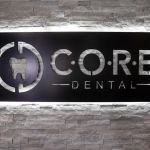- 1-Understanding-Jaw-Pain-from-Teeth-Grinding
- 2-Immediate-Steps-to-Relieve-Jaw-Pain
- 3-Long-Term-Strategies-for-Managing-Bruxism
- 4-Role-of-Dental-Appliances-in-Pain-Relief
- 5-Lifestyle-Changes-to-Prevent-Jaw-Pain
- 6-Patient-Experiences-and-Professional-Recommendations
1. Understanding Jaw Pain from Teeth Grinding
Jaw pain caused by teeth grinding, medically known as bruxism, results from the excessive clenching or grinding of teeth often during sleep. This repetitive action strains the muscles around the jaw, leading to soreness, headaches, and even temporomandibular joint (TMJ) discomfort.
Recognizing the symptoms early is important for effective relief. Common signs include tightness in the jaw, earaches, and difficulty opening or closing the mouth comfortably.
2. Immediate Steps to Relieve Jaw Pain
To alleviate jaw pain after episodes of teeth grinding, applying warm compresses can relax tense muscles. Gentle jaw exercises help improve flexibility and reduce stiffness. Over-the-counter pain relievers such as ibuprofen may also provide temporary comfort.
It's crucial to avoid hard or chewy foods that can exacerbate pain during recovery periods.
3. Long-Term Strategies for Managing Bruxism
Effective long-term management of bruxism includes stress reduction techniques like meditation, counseling, or physical therapy. Identifying and addressing underlying causes such as anxiety or sleep disorders can greatly reduce grinding frequency.
Maintaining good sleep hygiene and a consistent bedtime routine supports overall jaw health.
4. Role of Dental Appliances in Pain Relief
Custom-fitted dental appliances, commonly called night guards, protect teeth from grinding damage and reduce jaw muscle strain. These devices are designed by dental professionals to fit comfortably and distribute biting forces evenly.
Using a night guard as recommended can significantly diminish jaw pain and prevent further complications associated with bruxism.
5. Lifestyle Changes to Prevent Jaw Pain
Incorporating lifestyle changes such as limiting caffeine and alcohol intake, avoiding chewing gum, and practicing jaw relaxation techniques helps prevent jaw pain caused by teeth grinding.
Regular dental checkups also allow early detection and intervention, ensuring long-term oral and jaw health.
6. Patient Experiences and Professional Recommendations
Emily shares how using a custom night guard and adopting meditation significantly reduced her jaw pain after years of grinding. Her experience underscores the value of combining professional treatment with lifestyle adjustments.
Dentistry Toothtruth emphasizes personalized care plans and offers a range of solutions tailored to individual needs. For guidance and products to help relieve jaw pain caused by teeth grinding, visit Dentistry Toothtruth for expert support.







 CORE Dental4.0 (123 review)
CORE Dental4.0 (123 review) Brilliant Smiles Dentistry4.0 (331 review)
Brilliant Smiles Dentistry4.0 (331 review) Hurley and Volk Orthodontics - South Elgin4.0 (410 review)
Hurley and Volk Orthodontics - South Elgin4.0 (410 review) Dentist Implants Bucks County5.0 (7 review)
Dentist Implants Bucks County5.0 (7 review) All Family Dental and Braces4.0 (689 review)
All Family Dental and Braces4.0 (689 review) Polaris Dental Care4.0 (170 review)
Polaris Dental Care4.0 (170 review) The Importance of Oral Health Education During Pregnancy for a Healthy Pregnancy
The Importance of Oral Health Education During Pregnancy for a Healthy Pregnancy Best Tips for Brushing Your Teeth Properly for Healthy Gums: Essential Techniques for Oral Health
Best Tips for Brushing Your Teeth Properly for Healthy Gums: Essential Techniques for Oral Health Why Skipping Dental Checkups Can Lead to Bigger Oral Health Problems
Why Skipping Dental Checkups Can Lead to Bigger Oral Health Problems Advantages of Porcelain Dental Restorations
Advantages of Porcelain Dental Restorations How Can Diabetes Cause Tooth and Gum Problems? Preventing and Managing Oral Health Issues
How Can Diabetes Cause Tooth and Gum Problems? Preventing and Managing Oral Health Issues Healthy Habits for Promoting Good Oral Health and Hygiene: Tips for a Healthy Smile
Healthy Habits for Promoting Good Oral Health and Hygiene: Tips for a Healthy Smile